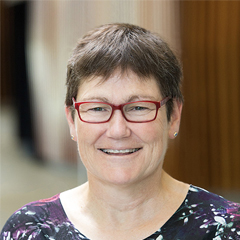Theme Leadership Groups
Home » About Us » Leadership »
Theme Leadership Groups
BRNZ has four research themes, each of which is overseen by a Theme Leadership Group and led by a Theme Leader. Theme Leaders facilitate co-ordination of research activities and encourage interaction and cooperation among researchers contributing to the theme.

THEME 1
Neurodiscovery (Genes, Cells, Networks)
Understanding the mechanisms of brain ageing and associated neurological disorders to inform development of new preventative interventions, treatments and novel therapy delivery systems. THEME LEADERSHIP GROUPProfessor Tim David (pictured) – Theme Leader
Associate Professor Debbie Young
Dr Stephanie Hughes
Associate Professor Bronwen Connor
Dr Emma Scotter

THEME 2
Neurobiomarkers (Disease indicators)
Using health informatics, longitudinal and cross-sectional studies in order to identify early biomarkers of ageing related neurological disorders THEME LEADERSHIP GROUPProfessor Ian Kirk (pictured) – Theme Leader
Professor Russell Snell
Dr Ping Liu
Dr Tracy Melzer
Dr Moana Theodore
Dr Erin Cawston

THEME 3
Neuroplasticity (Brain changes and adaptations)
Expanding our understanding of neuroplasticity during ageing, and its application to rehabilitation therapies and/or technologies for those affected by ageing and neurological conditions.
THEME LEADERSHIP GROUPProfessor Ruth Empson (pictured) – Theme Leader
Professor Alan Barber
Dr Joanna Williams
Dr Louise Parr-Brownlie
Dr Owen Jones

THEME 4
Prevention, Intervention and Delivery
Promoting clinical evaluation and implementing preventative measures and early interventions to minimise functional decline associated with brain ageing and ageing-related neurological disorders.
Raising awareness and promoting knowledge dissemination about brain ageing.
THEME LEADERSHIP GROUP